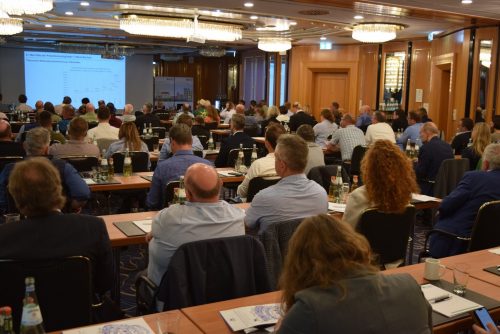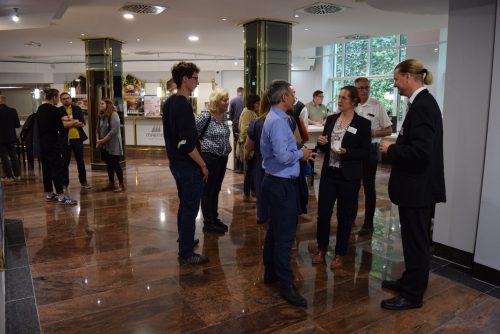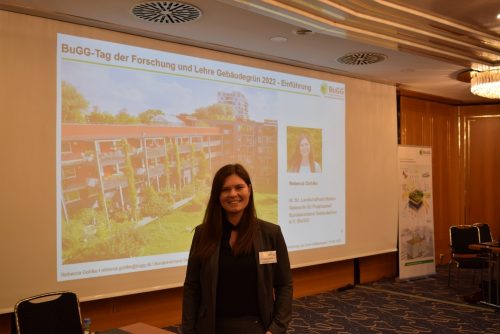EdiCitNet Workshop on “Edible Neighbourhoods for Berlin” at the Berlin Senate’s Summer Conference
On June 10th 2022, the workshop “Edible Neighbourhoods for Berlin” was organised as part of the SenUMVK (Senate Department for the Environment, Urban Mobility, Consumer Protection and Climate Action) Summer Conference.
The workshop was aimed at staff members from Berlin’s Neighbourhood Management programme (part of the German capital’s “Social Cohesion” initiative), as well as other city stakeholders. The goal was to reflect on the current situation in Berlin’s neighborhoods and identify potentials, opportunities and strategies for implementing more edible neighborhoods in the city.
At the beginning of the workshop, more than forty participants were welcomed by Tina Hilbert (Senate Department for Urban Development, Building and Housing) and Sarah Al-Alawi (Stadtkümmerei), who presented the workshop schedule. All participants were then asked to reflect on the current situation in the different areas where the Neighbourhood Management programme is active. With the help of area maps, the participants reflected on where Edible City Solutions (ECS) already exist and which areas could serve for the implementation of ECS in the future.
Afterwards, experts from different fields were invited to introduce the following topics:
(a) Community gardens (Paula Firmbach and Daniel Dermitzel, Prinzessinnengarten)
(b) Biodiversity (Ulrike Peters, Senate Department for the Environment, Urban Mobility, Consumer Protection and Climate Action)
(c) Kiez-Parklets, (Merlin Pitz, Senate Department for the Environment, Urban Mobility, Consumer Protection and Climate Action)
(d) Rainwater Management (Samuel Pearson and Paul Kober, Regenwasseragentur Berlin)
(e) Participatory Climate Protection (Eva Hage, Verbraucherzentrale Berlin e. V., and Tim Schumann, Bezirksamt Pankow – Amt für Weiterbildung und Kultur)
Following these so-called “expert pitches”, the participants gathered in small groups and compiled questions for the experts. For the expert sessions, five tables were set up, that were supervised by the experts from the above-mentioned fields. The sessions were organized in a World Café format. There was a total of three rounds of twenty minutes each, during which the participants could ask the experts questions about the implementation of edible neighbourhoods. There was a lively exchange between the participants and experts during the workshop, with many questions asked and answered.
Thank you to all participants, experts and volunteers who made this exchange on edible neighborhoods in Berlin so exciting and enlightening!











